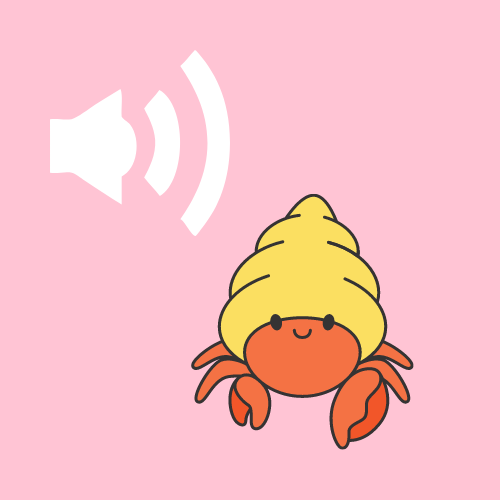Take a deep dive into the fascinating world of canine oral hygiene and discover the truth behind the myth: Are dogs' mouths really cleaner?
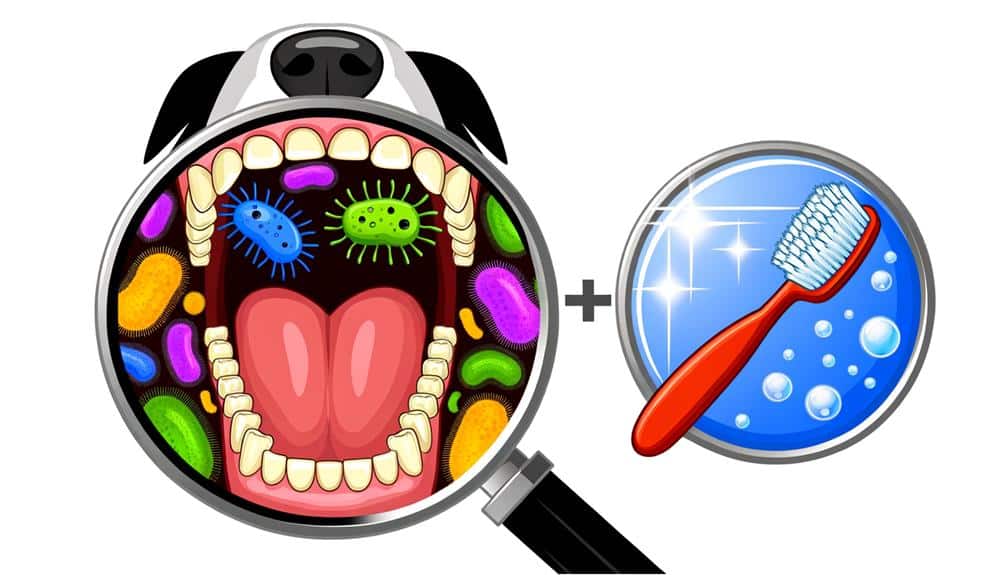
Are Dog’s Mouths Clean? [A Comprehensive Guide]
It seems like a bizarre question but it’s one that’s caught a lot of attention recently on the internet. Are dog’s mouths clean? It’s hard to imagine your dog’s mouth is clean when they lick their own behind and chew everything they can get their paws on, but some people seem to insist it’s true.
So I’ve decided to explore these common myths and give some perspective to readers regarding canine oral hygiene. This includes understanding the different types of bacteria that reside in a dog’s mouth and comparing them with human bacteria. With this approach, I hope you’ll gain a deeper understanding and see the reality of how clean a dog’s mouth is.
Understanding The Cleanliness of a Dog’s Mouth
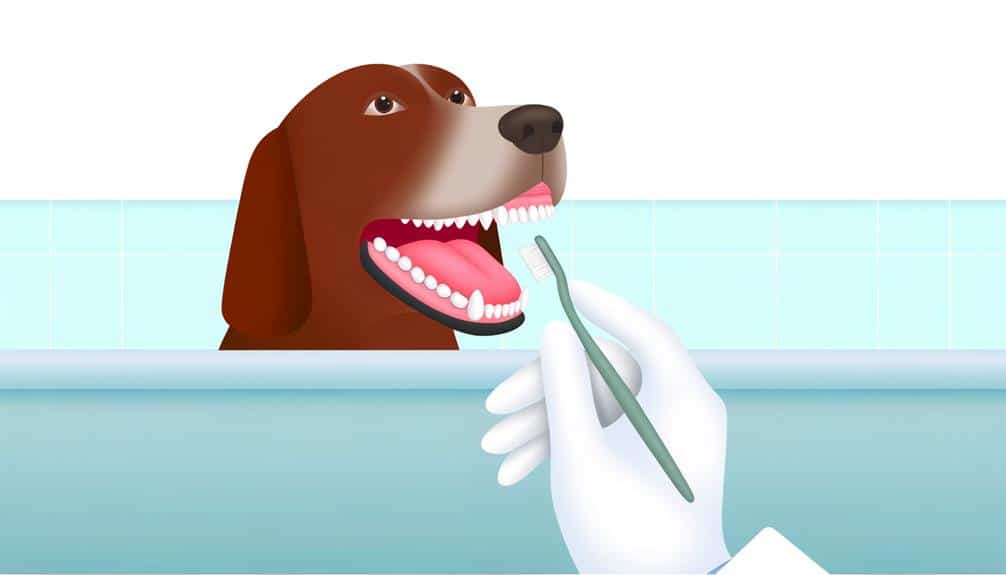
You might have heard that a dog’s mouth is cleaner than a human’s but the fact is this is nothing more than a myth. In reality, both humans and dogs harbor a large amount of bacteria in their mouths. It really comes down to the cleanliness and hygiene practices of the individual in question. Canine dental diseases however are significantly different making things like tooth decay a significant challenge.
Dental diseases are some of the most common issues a dog can face health-wise. These can range from minor things such as plague to severe life-changing conditions like periodontal disease which leads to systemic infection and tooth loss. This is why we emphasize the importance of oral hygiene for your pets here at cutepetcare.com. Regular brushing, dental chews, and scheduled professional cleaning can all help to prevent these issues.
An important point to note however is that whilst dogs’ mouths aren’t necessarily cleaner than ours, the bacteria found in their mouths are often less harmful. This is due to their immune system adaptations. However, bacteria can still cause significant detail issues if not treated appropriately.
Common Myths About Dog’s Mouths
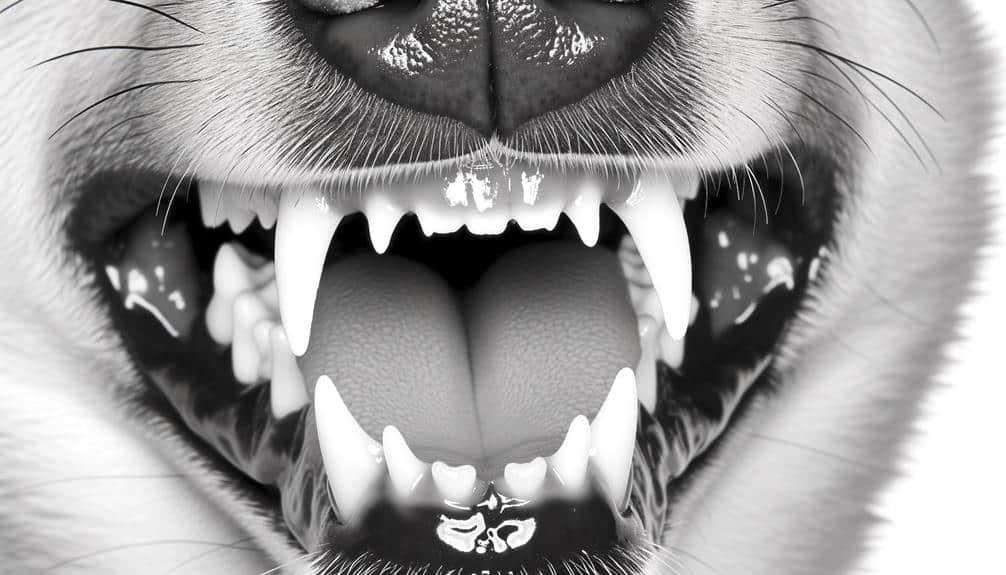
Despite understanding the importance of canine oral hygiene, there are still several myths about dogs’ mouths that can lead to misconceptions about their overall health. Let’s shed some light on these myths and separate fact from fiction.
Firstly, you’ve probably heard the old saying that a dog’s mouth is cleaner than a human’s. This is a myth. While both human and canine mouths are full of bacteria, they contain different types. So, it’s not accurate to say one is cleaner than the other.
Now, let’s move on to myth debunking around canine saliva benefits. It’s commonly believed that a dog’s saliva has healing properties. However, while their saliva does contain enzymes that can help clean wounds, it’s not a cure-all. It can’t replace proper wound care and treatment.
Another myth is the idea that if a dog’s mouth was truly unclean, they’d get sick from licking themselves. This isn’t entirely true either. Dogs have a different immune system than humans and are more resistant to certain bacteria. But that doesn’t mean they can’t get sick from their own bacteria, particularly if their immune system is compromised.
Bacteria: A Closer Look
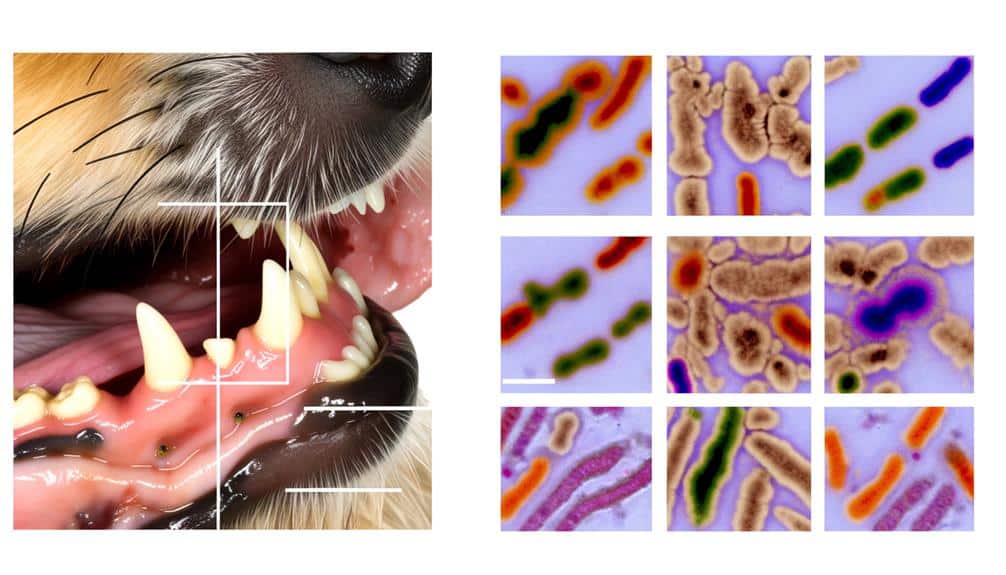
Now, let’s delve deeper into the world of bacteria residing in your dog’s mouth, as it’s essential to understand these microscopic organisms and their implications for your pet’s health. Your dog’s mouth is a bustling metropolis for bacteria types, with over 600 different species identified.
Bacteria Types |
Infection Risks |
|---|---|
Can cause skin and lymph node infections |
|
Can lead to skin infections |
|
Tied to periodontal disease |
|
Can result in heart issues |
There are different infection risks from each of these bacteria types. Pasteurella which is also found in dogs can cause skin infections and enlargement of the lymph nodes if it gets into humans. Also your dog’s mouth harbors Staphylococcus which can lead to skin infections. Similarly, Porphyromonas that is usually associated with periodontal diseases may result in severe dental problems if not treated. Finally, Streptococcus causes very serious heart complications.
One must remember that although these bacteria have potential risks, they are part of a dog’s normal oral microbiome. These bacteria are usually contained by most healthy dogs without treatment. Nevertheless, such organisms as these can overgrow and produce health problems in case of sickness for dogs who have weakened immunity systems.
Comparing Canine and Human Bacteria
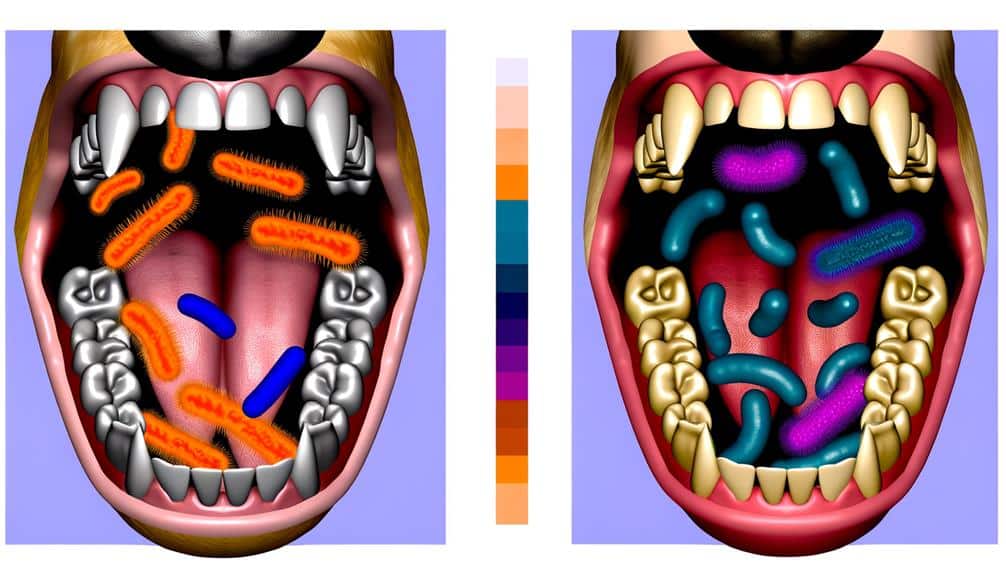
While it’s clear that your dog’s mouth is teeming with bacteria, it’s interesting to compare this with the bacterial world inside a human’s mouth. Both canine and human oral cavities can be seen as microbial hubs, with a diverse array of bacterial species thriving there. However, the types of bacteria found in these environments can be quite different.
Dogs’ mouths are primarily home to bacteria like Porphyromonas and Prevotella, both of which are associated with periodontal diseases in canines but not humans. On the other hand, human mouths are more likely to harbor bacteria such as Streptococcus and Actinomyces, which can cause dental cavities and gum disease in people.
Now, let’s discuss bacterial transmission. You might wonder if your dog can pass harmful bacteria to you while giving you a loving lick. The answer is yes, but it’s a rare occurrence. Most bacteria in your dog’s mouth aren’t zoonotic, meaning they can’t be transmitted to humans. However, certain conditions can increase this risk, like if your dog has a disease or if you have a weakened immune system.
Next, consider human allergies. Being exposed to dog’s saliva, which contains certain bacteria, can trigger allergic reactions in some people. Symptoms can range from mild, such as sneezing or a runny nose, to severe, like difficulty breathing. It’s important to understand that these allergies are usually responses to proteins in the dog’s saliva, not the bacteria itself.
Improving Your Dog’s Oral Health
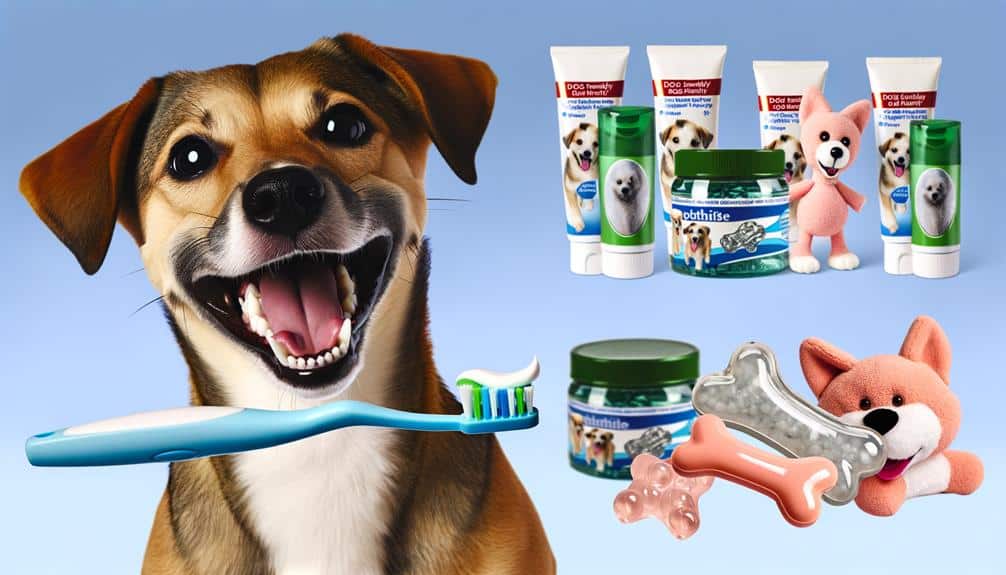
To keep your puppy’s teeth clean and healthy, you need to prioritize their oral hygiene and appreciate the significance of routine dental care. It is important to brush regularly with dog toothpaste. Brushing your pet’s teeth at least three times a week is advised, but daily brushing is preferable. Try different brushing techniques until you find the one that suits both you and your pet best.
For example, you might try circling movement during brushing concentrating on the back molars where tarter builds up most frequently. Alternately, lift the upper lip so that you can clean along the gum line since gum diseases may lead to some serious health problems if left untreated always remember patience and persistence are vital.
Consider adding dental treats as part of your dog’s oral health regimen. Dental treats offer dual benefits because they reduce plaque and tartar formation in addition to serving as rewards for your furry friend. These dental treats are designed to be chewed for long periods of time leading to increased salivation which naturally cleans your dog’s teeth.
However, note that these products don’t replace brushing; they only come in handy when used together with regular tooth-brushing techniques for better results.
Frequently Asked Questions
What Specific Diseases Can Dogs Transmit to Humans Through Saliva?”
You may not realize this, but your dog’s saliva can transmit various zoonotic infections to you. These include diseases like rabies, pasteurellosis, and capnocytophaga.
Even saliva allergies can arise due to proteins present in a dog’s spit. So, while you might love your pooch’s sloppy kisses, remember there’s a potential for illness.
It’s best to maintain their oral hygiene and ensure they’re up-to-date with vaccinations to reduce any risk.
How Often Should You Brush Your Dog’s Teeth?”
You should brush your dog’s teeth daily, if possible. If that’s not feasible, aim for at least 3-4 times a week.
Remember, the type of toothpaste matters! It’s crucial to use a toothpaste specifically designed for dogs.
Additionally, dental toys can supplement brushing by helping to clean your dog’s teeth and gums.
Just like with us, regular dental care is key to your pup’s overall health.
Are There Any Natural Remedies to Improve My Dog’s Oral Hygiene?”
Absolutely, there’re natural remedies to boost your dog’s oral hygiene. Chew toys can be a great help, they massage your dog’s gums and clean their teeth, reducing plaque build-up.
Herbal mouthwashes, like those with neem or aloe, can also provide benefits. They freshen breath and fight bacteria.
However, always consult with your vet before introducing any new products or routines to ensure they’re safe and suitable for your pet.
Do All Dog Breeds Have the Same Level of Oral Bacteria?”
No, not all dog breeds have the same level of oral bacteria. In fact, a study found a greater bacterial diversity in smaller breeds compared to larger ones.
Breed susceptibility also plays a key role, as some breeds are more prone to dental issues.
It’s important to routinely check your dog’s oral health, regardless of breed, because a clean mouth is crucial for their overall well-being.
Can a Dog’s Diet Affect the Cleanliness of Its Mouth?”
Absolutely, a dog’s diet can impact the cleanliness of its mouth. Dental chews benefits include reducing plaque and freshening breath.
Kibble, when compared to wet food, can also help keep those chompers clean by scraping off plaque as your dog chews.
Conclusion
Your dog’s mouth isn’t cleaner than yours. It’s just different.
While canine and human bacteria aren’t the same, both need attention. Regular brushing and dental checks can significantly improve your dog’s oral health.
Remember, a healthy mouth contributes to a happy, healthy dog.

Doctor of Veterinary Medicine (D.V.M.) at Nation Taiwan University,Master of Science (M.S.) in Biomedical Engineering at National Taiwan University of Science and Technology



